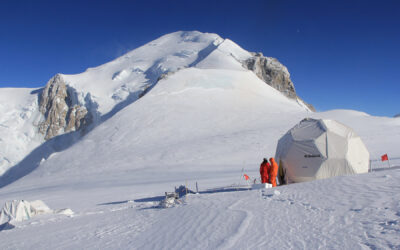Reno, Nev. (July 23, 2020) – Several members of the Native Waters on Arid Lands (NWAL) project team, led by Maureen McCarthy, Ph.D., of the Desert Research Institute (DRI) in Reno, have been awarded a $300k grant from the US Department of Agriculture National Institute of Food and Agriculture (USDA-NIFA) to develop a COVID-19 Rapid Response Toolkit for Tribal Extension Agents (COVID-19 Toolkit).
Tribal Extension Agents with the Federally-Recognized Tribes Extension Program (FRTEP) normally provide a lifeline of in-person, community-based services to tribal farmers, ranchers, and resource managers – but since the beginning of the COVID-19 pandemic, they have been forced to transition to virtual delivery of critical services with no additional resources, training, or tools. The COVID-19 Toolkit project will support Tribal Extension Programs in Nevada and Arizona by developing a virtual platform for outreach and training materials needed by agents in the field, including webinars and short training videos.
In addition, FRTEP agents in the field will be equipped with ruggedized computer tablets that will allow them to access the virtual platform in advance and during one-on-one technical consultations and small social-distanced group meetings with tribal farmers and ranchers. A COVID-19 CARE Working Group will be established to share timely information and solve needs-based problems for tribal farmers and ranchers and assist reservation communities with food access to lessen the hardships of COVID-19 throughout Indian Country.
The project will run from August 2020 until July 2022, and will be led by McCarthy with support from Alexandra Lutz, Ph.D. (DRI), Kyle Bocinsky (Crow Canyon Archaeological Center), Trent Teegerstrom (Tribal Extension, University of Arizona), and Staci Emm (Tribal Extension, University of Nevada, Reno).
“With this funding, we will translate and share research produced as part of the NWAL project, and tailor it to respond to urgent needs identified by our Tribal partners,” McCarthy said. “Information delivered will be virtually-accessible and place-based and focused on addressing the challenges facing Indian farmers and ranchers during COVID-19 response and recovery. The COVID-19 Toolkit will provide geolocated environmental data, training videos, webinars, and other materials to FRTEP agents working under social distancing constraints and responding to a rapidly increasing demand for water and agricultural outreach support.”
###
About the Desert Research Institute
The Desert Research Institute (DRI) is a recognized world leader in basic and applied interdisciplinary research. Committed to scientific excellence and integrity, DRI faculty, students, and staff have developed scientific knowledge and innovative technologies in research projects around the globe. Since 1959, DRI’s research has advanced scientific knowledge, supported Nevada’s diversifying economy, provided science-based educational opportunities, and informed policy makers, business leaders, and community members. With campuses in Reno and Las Vegas, DRI serves as the non-profit research arm of the Nevada System of Higher Education. For more information, please visit www.dri.edu.
About Native Waters on Arid Lands
The Native Waters on Arid Lands (NWAL; https://nativewaters-aridlands.com) project seeks to enhance the climate resiliency of agriculture on American Indian lands of the Great Basin and Southwest by building the capacity within tribal communities to develop and implement reservation-wide plans, policies, and practices to support sustainable agriculture and water management. Partners in the project include the Desert Research Institute; the University of Nevada, Reno; the University of Arizona; First Americans Land-Grant Consortium; Utah State University; Ohio University; United States Geological Survey; and the Federally Recognized Tribal Extension Program in Nevada and Arizona. This project is funded by the U.S. Department of Agriculture’s National Institute of Food and Agriculture.


